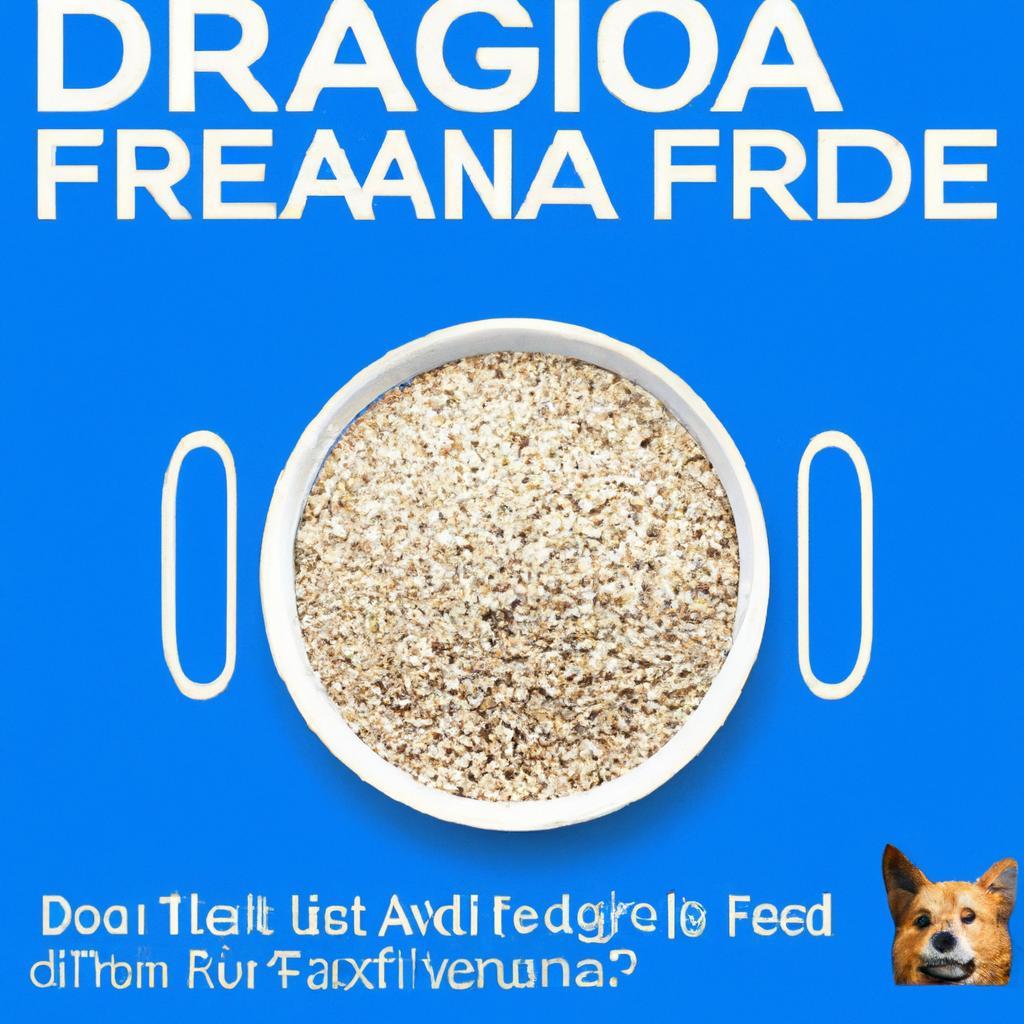Once upon a time in a bustling town, a dog named Max thrived on a grain-free diet, his coat gleaming and energy boundless. His owner, Sarah, was convinced she had found the secret to Max’s vitality. However, a visit to the vet revealed that not all dogs benefit from grain-free food. In fact, some may develop health issues like heart disease due to a lack of essential nutrients. The lesson? Every dog is unique. Consult your vet to determine the best diet for your furry friend—because their health deserves the best care.
Contents
- The Nutritional Needs of Dogs and the Role of Grains
- Understanding the Potential Risks of Grain-Free Diets
- Evaluating the Benefits of Including Grains in Your Dogs Diet
- Making Informed Choices: Recommendations for Dog Owners
- Q&A
The Nutritional Needs of Dogs and the Role of Grains
Understanding the dietary requirements of dogs is essential for ensuring their overall health and well-being. Dogs are omnivores, which means their bodies are designed to digest a variety of foods, including proteins, fats, and carbohydrates. Grains, often found in commercial dog foods, can provide a valuable source of carbohydrates, fiber, and essential nutrients. When considering whether to feed your dog grain-free food, it’s crucial to recognize the potential benefits that grains can offer.
Grains such as brown rice, oats, and barley are rich in **complex carbohydrates**, which serve as a primary energy source for active dogs. These carbohydrates are broken down slowly, providing a steady release of energy throughout the day. Additionally, grains contain **fiber**, which aids in digestion and helps maintain a healthy gut. This is particularly important for dogs that may suffer from gastrointestinal issues, as fiber can promote regular bowel movements and prevent constipation.
Moreover, grains are often fortified with essential vitamins and minerals that contribute to a balanced diet. For instance, whole grains can be a good source of **B vitamins**, which play a vital role in energy metabolism and overall health. They also provide **antioxidants** that help combat oxidative stress, supporting your dog’s immune system. By incorporating grains into your dog’s diet, you may be providing them with a more comprehensive nutritional profile that supports their long-term health.
It’s important to note that not all dogs will have the same dietary needs, and some may have specific sensitivities or allergies to certain grains. However, for the majority of dogs, grains can be a beneficial component of their diet. When selecting dog food, consider the quality of the ingredients and the overall balance of nutrients. Consulting with a veterinarian can help you determine the best dietary approach for your furry friend, ensuring they receive the nutrition they need to thrive.
Understanding the Potential Risks of Grain-Free Diets
As pet owners increasingly seek alternatives to traditional dog food, grain-free diets have gained significant popularity. However, it is essential to recognize that these diets may carry potential risks that warrant careful consideration. One of the primary concerns is the association between grain-free diets and certain health issues, particularly dilated cardiomyopathy (DCM). This serious heart condition has been linked to the consumption of certain grain-free formulations, especially those high in peas, lentils, and potatoes.
Moreover, eliminating grains from a dog’s diet can inadvertently lead to nutritional imbalances. Grains are a source of essential nutrients, including vitamins, minerals, and fiber. When grains are removed, it becomes crucial to ensure that the diet is still well-rounded and meets all of a dog’s nutritional needs. Without careful planning, a grain-free diet may lack important components such as omega fatty acids and B vitamins, which are vital for maintaining overall health.
Another risk associated with grain-free diets is the potential for increased protein levels, which can be problematic for certain breeds or individual dogs with specific health concerns. High-protein diets can lead to kidney strain in predisposed dogs, particularly those with pre-existing kidney issues. Additionally, some grain-free foods may contain higher levels of fat, which can contribute to obesity and related health problems if not monitored closely.
Lastly, the shift towards grain-free diets may also lead to a misunderstanding of what constitutes a balanced diet for dogs. Many pet owners may assume that grain-free automatically means healthier, but this is not always the case. It is crucial to consult with a veterinarian or a pet nutritionist to ensure that any dietary changes are appropriate for your dog’s specific health needs and lifestyle. Making informed decisions about your dog’s diet can help mitigate potential risks while promoting their overall well-being.
Evaluating the Benefits of Including Grains in Your Dogs Diet
When considering the dietary needs of our canine companions, it’s essential to recognize the potential advantages of incorporating grains into their meals. Grains, such as brown rice, oats, and barley, are not only a source of carbohydrates but also provide essential nutrients that can contribute to overall health. These ingredients can serve as a valuable energy source, particularly for active dogs, ensuring they have the stamina to engage in play and exercise.
Moreover, grains can play a significant role in digestive health. Many grains are rich in dietary fiber, which aids in maintaining a healthy digestive system. This fiber can help regulate bowel movements and prevent issues such as constipation. Additionally, a fiber-rich diet can promote a feeling of fullness, which may assist in weight management for dogs prone to obesity.
Including grains in a dog’s diet can also enhance the nutritional profile of their food. Grains are often fortified with vitamins and minerals that are crucial for a dog’s well-being. For instance, whole grains can provide essential B vitamins, iron, and magnesium, all of which support various bodily functions, including energy production and immune system health. By choosing a balanced diet that includes grains, pet owners can ensure their dogs receive a comprehensive array of nutrients.
Lastly, the inclusion of grains can foster a more diverse diet, which is beneficial for dogs’ palates and overall satisfaction with their meals. Dogs, like humans, can benefit from variety in their diet, which can help prevent food boredom and encourage healthy eating habits. By opting for grain-inclusive dog food, pet owners can provide their furry friends with a well-rounded diet that not only meets their nutritional needs but also keeps mealtime exciting.
Making Informed Choices: Recommendations for Dog Owners
When considering the dietary needs of your canine companion, it’s essential to weigh the benefits and potential drawbacks of grain-free dog food. Many dog owners are drawn to grain-free options under the impression that they are healthier or more natural. However, it’s crucial to understand that not all dogs require a grain-free diet. In fact, grains can provide valuable nutrients and energy sources that are beneficial for many dogs. Before making a switch, consult with your veterinarian to determine the best diet for your dog’s specific health needs.
One of the primary concerns surrounding grain-free diets is the potential link to canine dilated cardiomyopathy (DCM), a serious heart condition. Recent studies have suggested that certain grain-free formulations, particularly those high in peas, lentils, and potatoes, may be associated with an increased risk of DCM in some breeds. Therefore, it is vital to choose dog food that is not only grain-free but also balanced and complete, ensuring it meets the nutritional standards set by the Association of American Feed Control Officials (AAFCO).
For those who decide to pursue a grain-free diet, it is essential to select high-quality products that contain a variety of protein sources and healthy fats. Look for options that include **real meat** as the first ingredient, along with a mix of **vegetables** and **fruits** to provide essential vitamins and minerals. Additionally, consider brands that have undergone rigorous testing and have a good reputation in the pet food industry. This diligence will help ensure that your dog receives a well-rounded diet that supports their overall health.
Lastly, always monitor your dog’s health and behavior after transitioning to a new diet. Keep an eye out for any signs of allergies, digestive issues, or changes in energy levels. If you notice any adverse reactions, it may be time to reassess your dog’s food choices. Remember, the goal is to provide your furry friend with the best possible nutrition tailored to their individual needs, which may or may not include a grain-free option. Your commitment to making informed choices will ultimately lead to a happier, healthier dog.
Q&A
-
Is grain-free dog food better for my dog?
Grain-free dog food can be beneficial for dogs with specific grain allergies or sensitivities. However, for most dogs, grains like rice and oats provide essential nutrients and energy. It’s crucial to consult with your veterinarian to determine the best diet for your dog’s individual needs.
-
Can grain-free diets lead to health issues?
Recent studies have suggested a potential link between grain-free diets and certain health issues, such as canine dilated cardiomyopathy (DCM). While the research is ongoing, it’s essential to choose a balanced diet that meets all nutritional requirements. Always discuss dietary changes with your vet.
-
What are the benefits of including grains in my dog’s diet?
Grains can provide a good source of carbohydrates, fiber, and essential nutrients. They can help maintain healthy digestion, provide energy, and support overall health. Including grains in your dog’s diet can contribute to a balanced and complete nutritional profile.
-
How do I choose the right dog food for my pet?
When selecting dog food, consider your dog’s age, breed, activity level, and any specific health concerns. Look for high-quality ingredients and consult with your veterinarian to ensure the food meets your dog’s nutritional needs. A well-balanced diet is key to your dog’s health and well-being.
while grain-free dog food may seem appealing, it’s essential to prioritize your dog’s overall health and nutritional needs. Consult your veterinarian to determine the best diet for your furry friend, ensuring they thrive for years to come.

大家好,我是彼得潘,專業的手法身體治療師。我喜歡探索和研究各種主題,並透過與人工智慧的合作分享專業、實用、有趣的文章。我們定期進行人工審核,以確保內容的準確性。如果您發現文章中有任何不準確的地方,請隨時與我們聯繫,我們會及時糾正。您可以透過 [email protected] 與我們聯繫。



